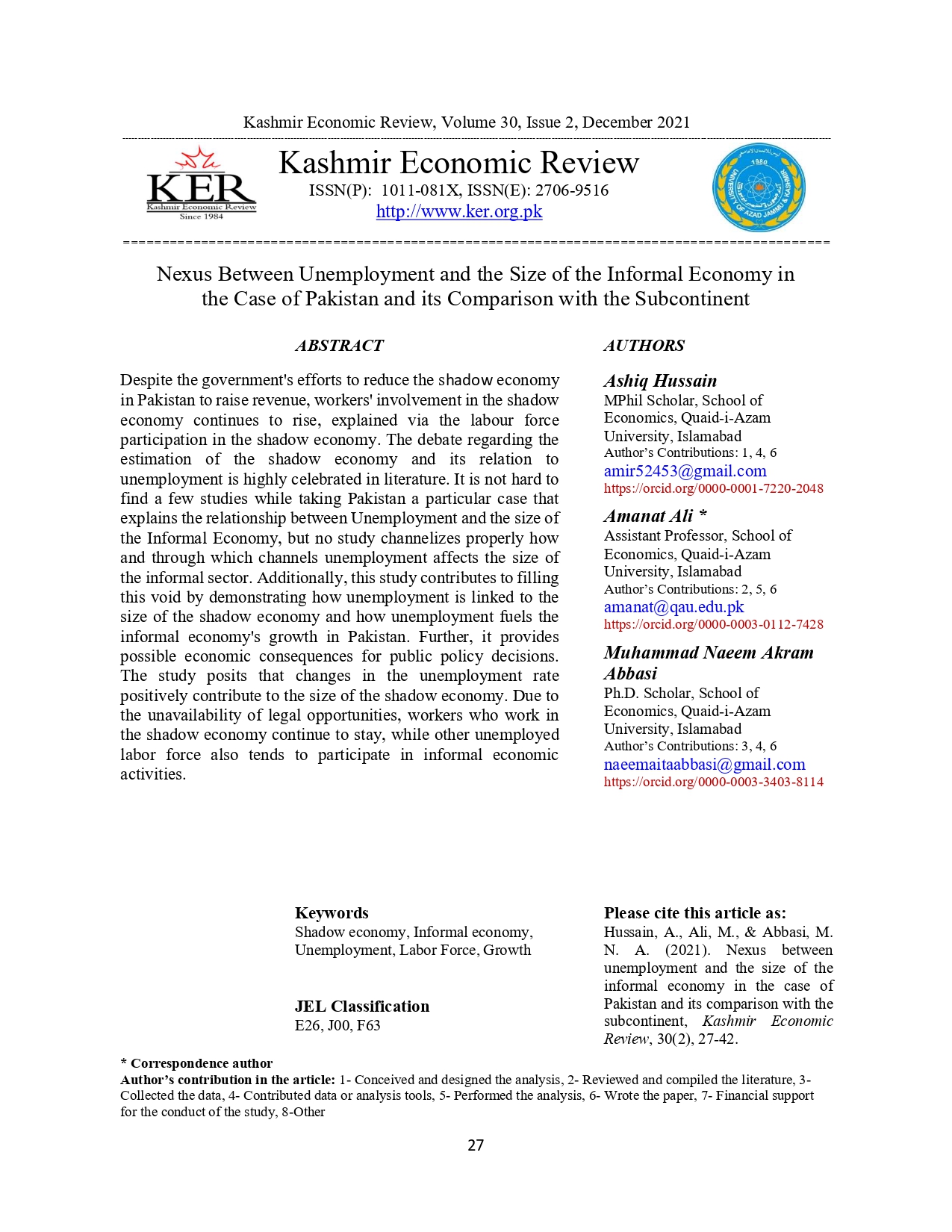Nexus Between Unemployment and the Size of the Informal Economy in the Case of Pakistan and its Comparison with the Subcontinent
Contenu principal de l'article
Résumé
Despite the government's efforts to reduce the shadow economy
in Pakistan to raise revenue, workers' involvement in the shadow
economy continues to rise, explained via the labour force
participation in the shadow economy. The debate regarding the
estimation of the shadow economy and its relation to
unemployment is highly celebrated in literature. It is not hard to
find a few studies while taking Pakistan a particular case that
explains the relationship between Unemployment and the size of
the Informal Economy, but no study channelizes properly how
and through which channels unemployment affects the size of
the informal sector. Additionally, this study contributes to filling
this void by demonstrating how unemployment is linked to the
size of the shadow economy and how unemployment fuels the
informal economy's growth in Pakistan. Further, it provides
possible economic consequences for public policy decisions.
The study posits that changes in the unemployment rate
positively contribute to the size of the shadow economy. Due to
the unavailability of legal opportunities, workers who work in
the shadow economy continue to stay, while other unemployed
labor force also tends to participate in informal economic
activities.
Details de l'article

Ce travail est disponible sous licence Creative Commons Attribution - Partage dans les Mêmes Conditions 4.0 International.

